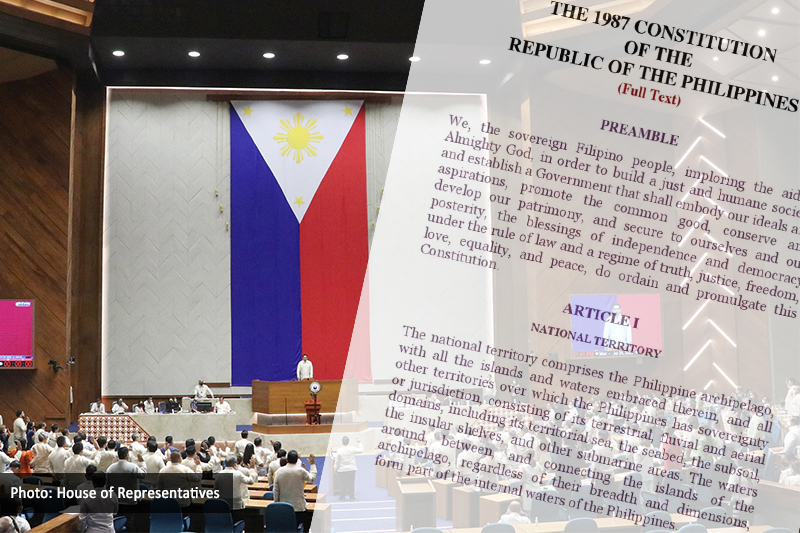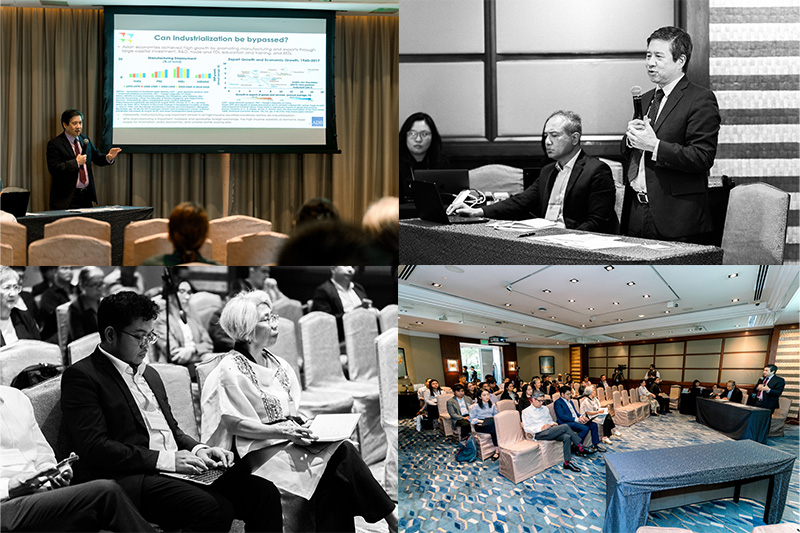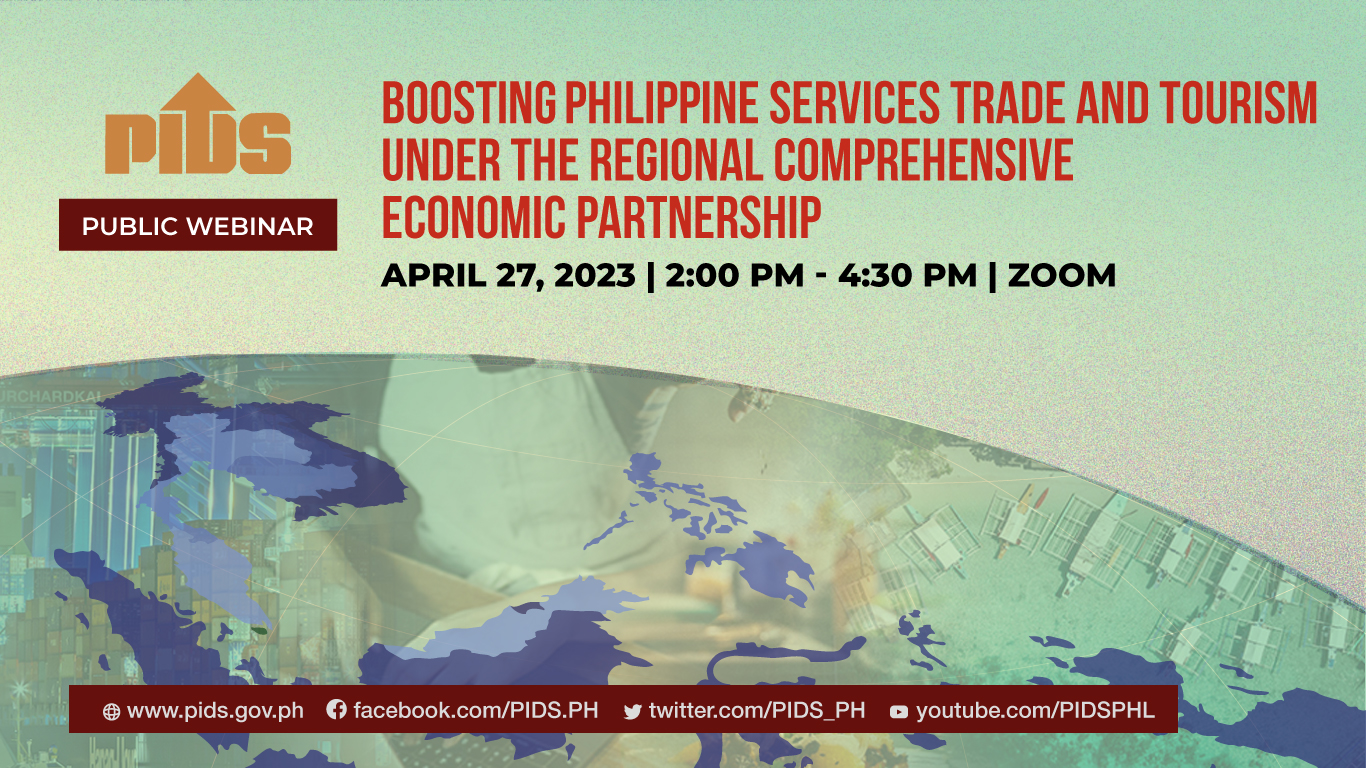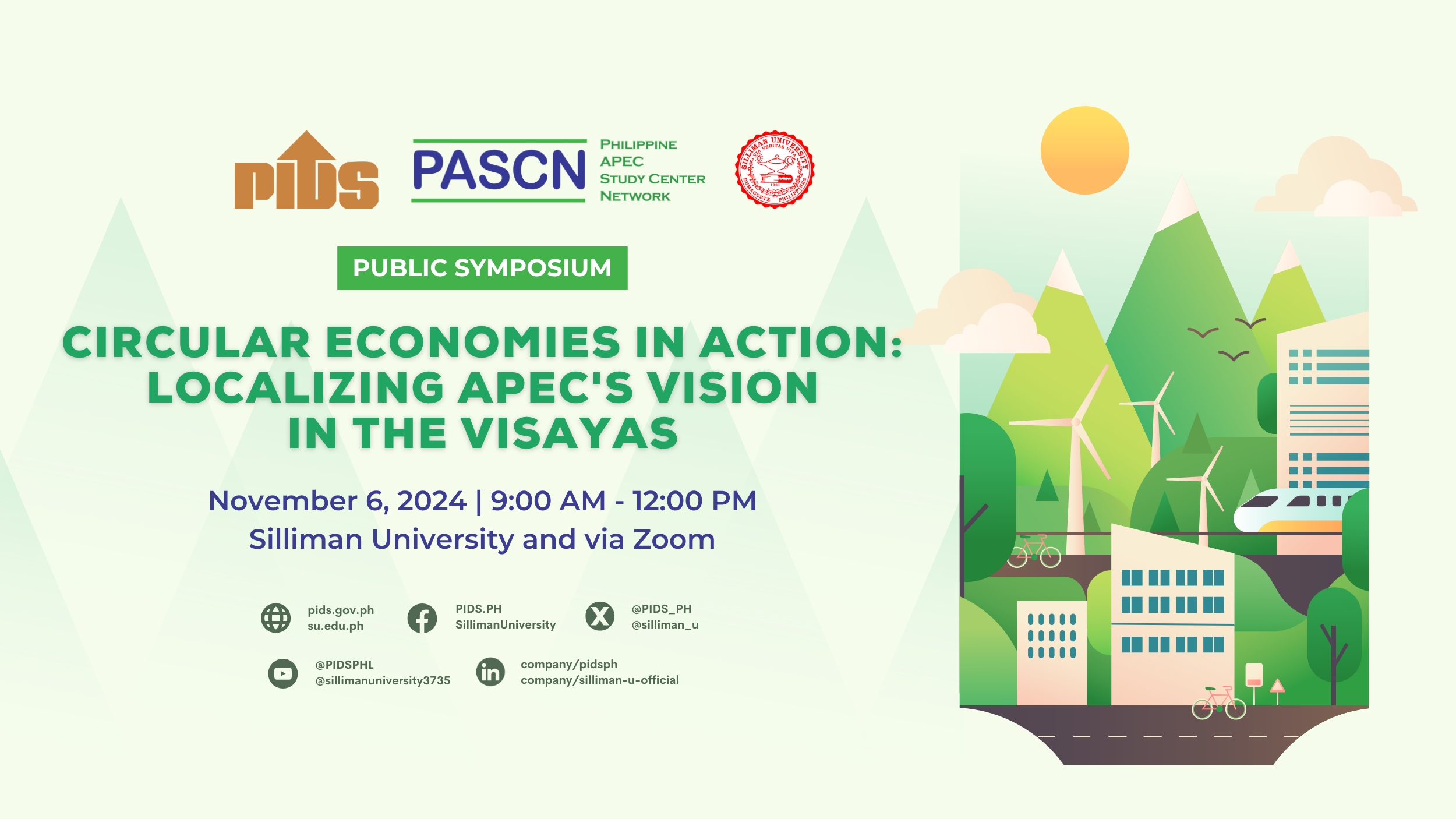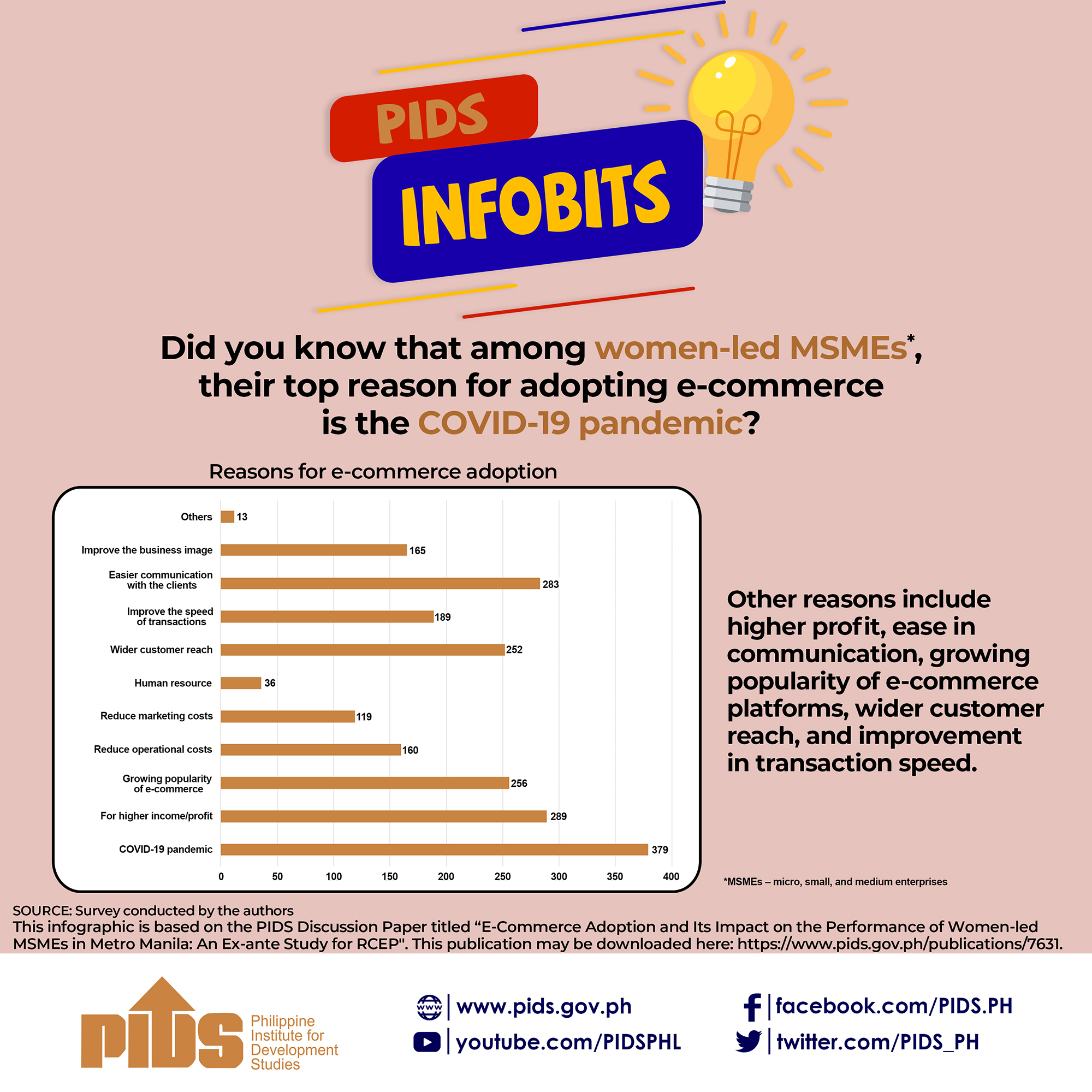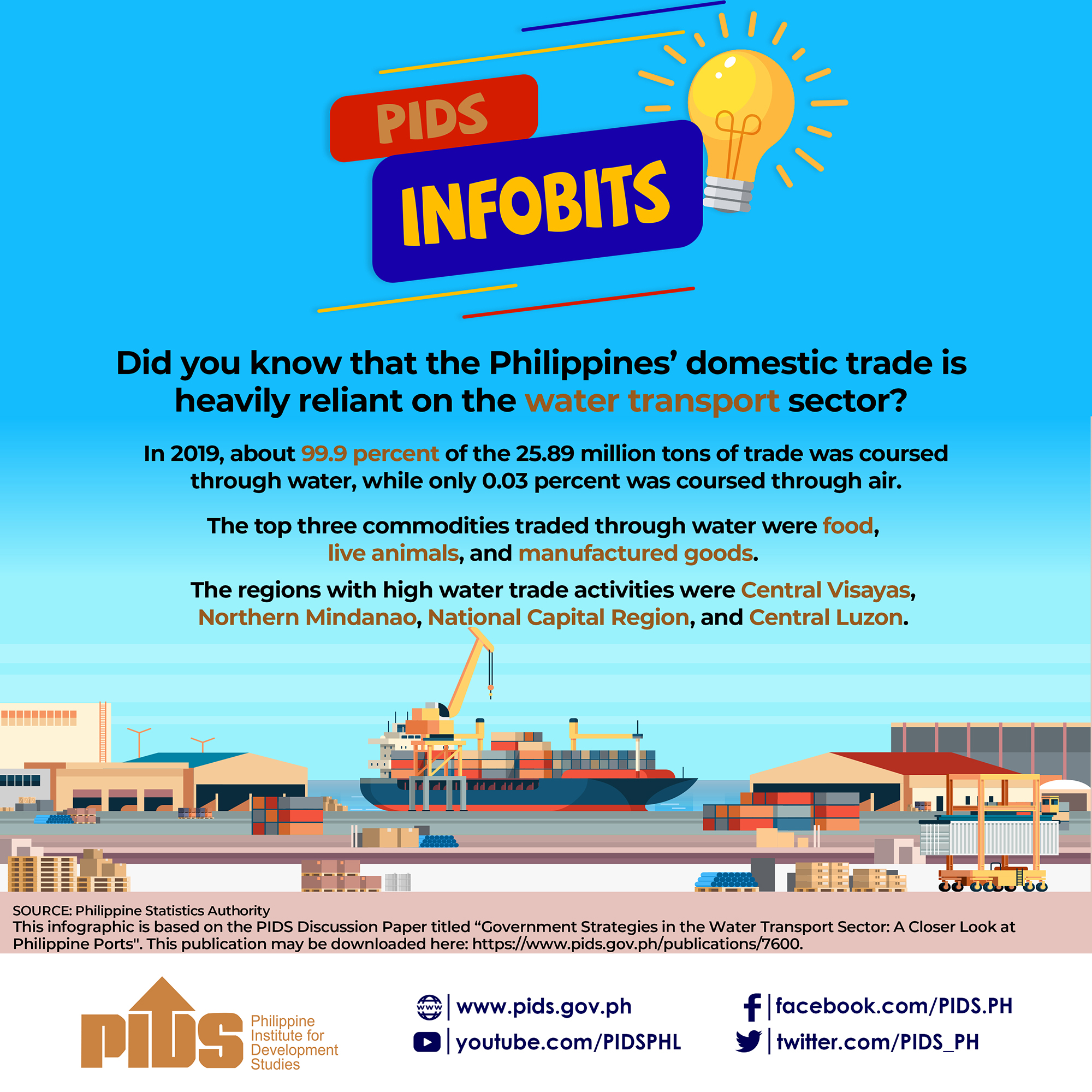The Philippine services sector needs an articulated and comprehensive national strategy to maximize its potentials as a growth engine for the economy.
In the National Workshop on Services organized by state think tank Philippine Institute for Development Studies (PIDS) and the Department of Foreign Affairs (DFA), experts and stakeholders from the private and public sectors underscored the need for a more focused national strategy for services.
The Philippines can be a hub for services trade in Asia Pacific because of its pool of skilled, semiskilled, and low-skilled workers, PIDS Research Consultant Dr. Ramonette Serafica said. "The estimated 10.4 million Filipinos abroad are a natural market for Philippine services," she added.
According to Serafica, the country can tap opportunities in maritime, outsourcing, franchising, medical, and educational services. "The Philippines can be a home to world-class brands with the internationalization of Philippine franchise brands," she said.
There is a need, however, to boost government support such as in strengthening Philippine participation in international shows, trade missions, and business matching sessions, she said. Alegria "Bing" Sibal-Limjoco, vice-chairman of the Philippine Franchise Association, lamented: "In last year's Philippine participation in international franchise held in Singapore, the country had only a booth while other ASEAN countries had pavilions."
For Doris Magsaysay-Ho, president and CEO of A. Magsaysay, Inc., the country's high-quality talent pool is a competitive services proposition for the global maritime industry. "Knowledge of the maritime field using experienced people offers opportunity to develop business outsourcing services for shipping companies, insurance companies, and others," she said.
The Philippine Information Technology - Business Processing Management (IT-BPM) industry, meanwhile, is not only competitive in voice services, said Ana Maria Bongato, executive director for talent development at the IT Business Process Association of the Philippines (IBPAP). A wide range of services such as IT application, engineering, animation, data analytics, and other business process services are offered by the Philippines, she said.
The Philippine IT-BPM industry is ranked second as a global outsourcing destination and is the country's largest private sector job creator with 900,000 jobs created last year, said Bongato.
Former health secretary Dr. Jaime Galvez-Tan said the country can be an international and medical retirement zone. "The country can be retirement havens for Northeast Asians, OFWs, and expats," Galvez-Tan said. "We can offer spa tourism, alternative, and Filipino traditional medicine to them," he said.
Also, trade in educational services can make an important contribution in enhancing Philippine higher education, said Prof. Tereso Tullao Jr. of De La Salle University. It can lead to harmonization of academic standards and open avenues for regional cooperation in higher education, he said.
Tullao called for higher standards in educational services, noting the small number of accredited programs and lack of faculty qualifications of Philippine higher education institutions (HEIs). "Only 21.5 percent of the more than 2,200 HEIs have some form of accreditation and a miniscule 12.7 percent of around 130,000 faculty members have doctoral degrees," he said.
To harness services trade, former PIDS president Dr. Josef Yap stressed the need to have an institutional framework to address cross-cutting issues in services trade such as smuggling, transportation and logistics, skills mismatch, and power.
"There is a need to create an institutional setting to coordinate policies required to develop the country's services capacity through infrastructure development, skills upgrade, support policies and incentives," Yap said.
Moreover, the national vision or strategy on promoting the service sector should be anchored on a higher order objective which is the pursuit of inclusive growth for the country, said NEDA deputy director-general Emmanuel Esguerra.
In relation to this, PIDS President Gilberto Llanto said there is a need for a deeper understanding of the services sector for effective policy measures considering that the sector contributes significantly to the economy. "Philippine growth is driven by an expanding services sector which accounts for 57 percent of total GDP," Llanto noted.
It is thus important to guide the direction of the services sector since it contributes positively to the country's development and job generation agenda, said Laura del Rosario, Foreign Affairs undersecretary for international economic relations.
At the close of the workshop, del Rosario announced the revival of the Philippine Services Coalition, a multi-stakeholder group to be led by the private sector that will campaign for reforms to boost the services sector. The coalition will soon meet to map out its strategic initiatives, she said.
The National Workshop on Services was held in preparation for the Philippines' chairmanship of the Asia-Pacific Economic Cooperation (APEC) forum next year, del Rosario said.
The workshop brought together local and international experts and other stakeholders to discuss opportunities in services trade. The output of the workshop will serve as an input toward a comprehensive strategy on services.
In the National Workshop on Services organized by state think tank Philippine Institute for Development Studies (PIDS) and the Department of Foreign Affairs (DFA), experts and stakeholders from the private and public sectors underscored the need for a more focused national strategy for services.
The Philippines can be a hub for services trade in Asia Pacific because of its pool of skilled, semiskilled, and low-skilled workers, PIDS Research Consultant Dr. Ramonette Serafica said. "The estimated 10.4 million Filipinos abroad are a natural market for Philippine services," she added.
According to Serafica, the country can tap opportunities in maritime, outsourcing, franchising, medical, and educational services. "The Philippines can be a home to world-class brands with the internationalization of Philippine franchise brands," she said.
There is a need, however, to boost government support such as in strengthening Philippine participation in international shows, trade missions, and business matching sessions, she said. Alegria "Bing" Sibal-Limjoco, vice-chairman of the Philippine Franchise Association, lamented: "In last year's Philippine participation in international franchise held in Singapore, the country had only a booth while other ASEAN countries had pavilions."
For Doris Magsaysay-Ho, president and CEO of A. Magsaysay, Inc., the country's high-quality talent pool is a competitive services proposition for the global maritime industry. "Knowledge of the maritime field using experienced people offers opportunity to develop business outsourcing services for shipping companies, insurance companies, and others," she said.
The Philippine Information Technology - Business Processing Management (IT-BPM) industry, meanwhile, is not only competitive in voice services, said Ana Maria Bongato, executive director for talent development at the IT Business Process Association of the Philippines (IBPAP). A wide range of services such as IT application, engineering, animation, data analytics, and other business process services are offered by the Philippines, she said.
The Philippine IT-BPM industry is ranked second as a global outsourcing destination and is the country's largest private sector job creator with 900,000 jobs created last year, said Bongato.
Former health secretary Dr. Jaime Galvez-Tan said the country can be an international and medical retirement zone. "The country can be retirement havens for Northeast Asians, OFWs, and expats," Galvez-Tan said. "We can offer spa tourism, alternative, and Filipino traditional medicine to them," he said.
Also, trade in educational services can make an important contribution in enhancing Philippine higher education, said Prof. Tereso Tullao Jr. of De La Salle University. It can lead to harmonization of academic standards and open avenues for regional cooperation in higher education, he said.
Tullao called for higher standards in educational services, noting the small number of accredited programs and lack of faculty qualifications of Philippine higher education institutions (HEIs). "Only 21.5 percent of the more than 2,200 HEIs have some form of accreditation and a miniscule 12.7 percent of around 130,000 faculty members have doctoral degrees," he said.
To harness services trade, former PIDS president Dr. Josef Yap stressed the need to have an institutional framework to address cross-cutting issues in services trade such as smuggling, transportation and logistics, skills mismatch, and power.
"There is a need to create an institutional setting to coordinate policies required to develop the country's services capacity through infrastructure development, skills upgrade, support policies and incentives," Yap said.
Moreover, the national vision or strategy on promoting the service sector should be anchored on a higher order objective which is the pursuit of inclusive growth for the country, said NEDA deputy director-general Emmanuel Esguerra.
In relation to this, PIDS President Gilberto Llanto said there is a need for a deeper understanding of the services sector for effective policy measures considering that the sector contributes significantly to the economy. "Philippine growth is driven by an expanding services sector which accounts for 57 percent of total GDP," Llanto noted.
It is thus important to guide the direction of the services sector since it contributes positively to the country's development and job generation agenda, said Laura del Rosario, Foreign Affairs undersecretary for international economic relations.
At the close of the workshop, del Rosario announced the revival of the Philippine Services Coalition, a multi-stakeholder group to be led by the private sector that will campaign for reforms to boost the services sector. The coalition will soon meet to map out its strategic initiatives, she said.
The National Workshop on Services was held in preparation for the Philippines' chairmanship of the Asia-Pacific Economic Cooperation (APEC) forum next year, del Rosario said.
The workshop brought together local and international experts and other stakeholders to discuss opportunities in services trade. The output of the workshop will serve as an input toward a comprehensive strategy on services.





